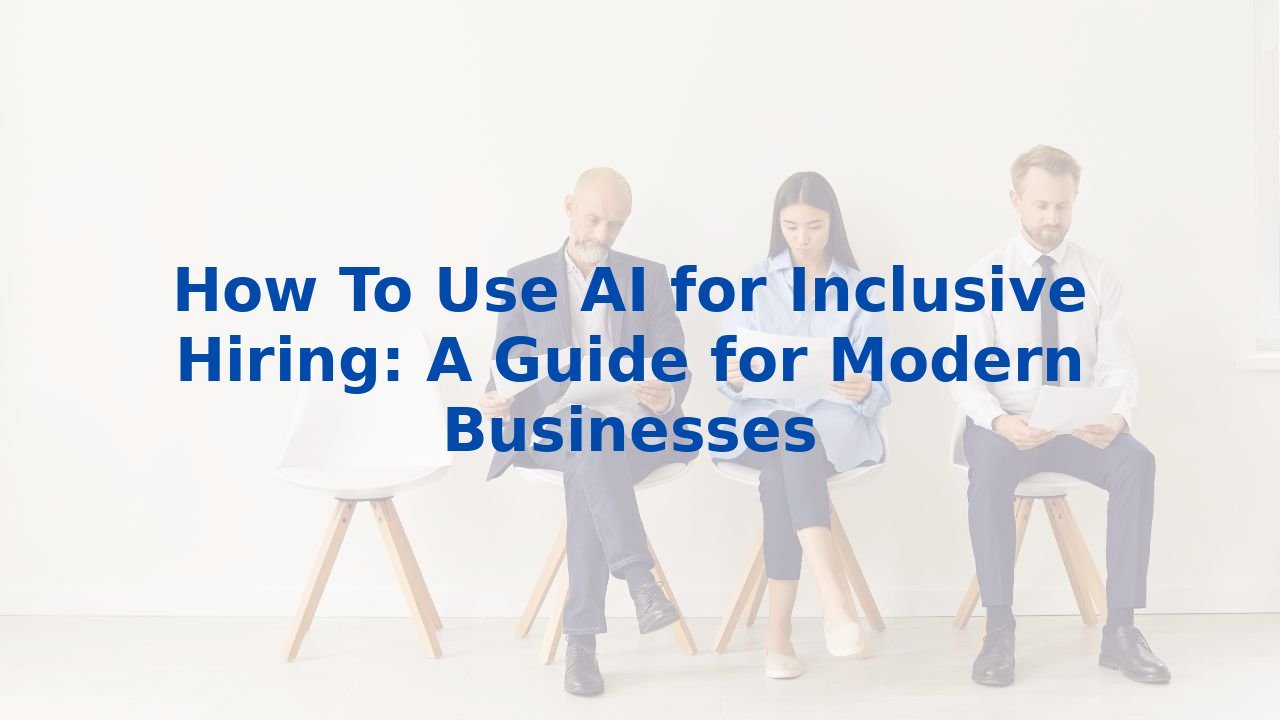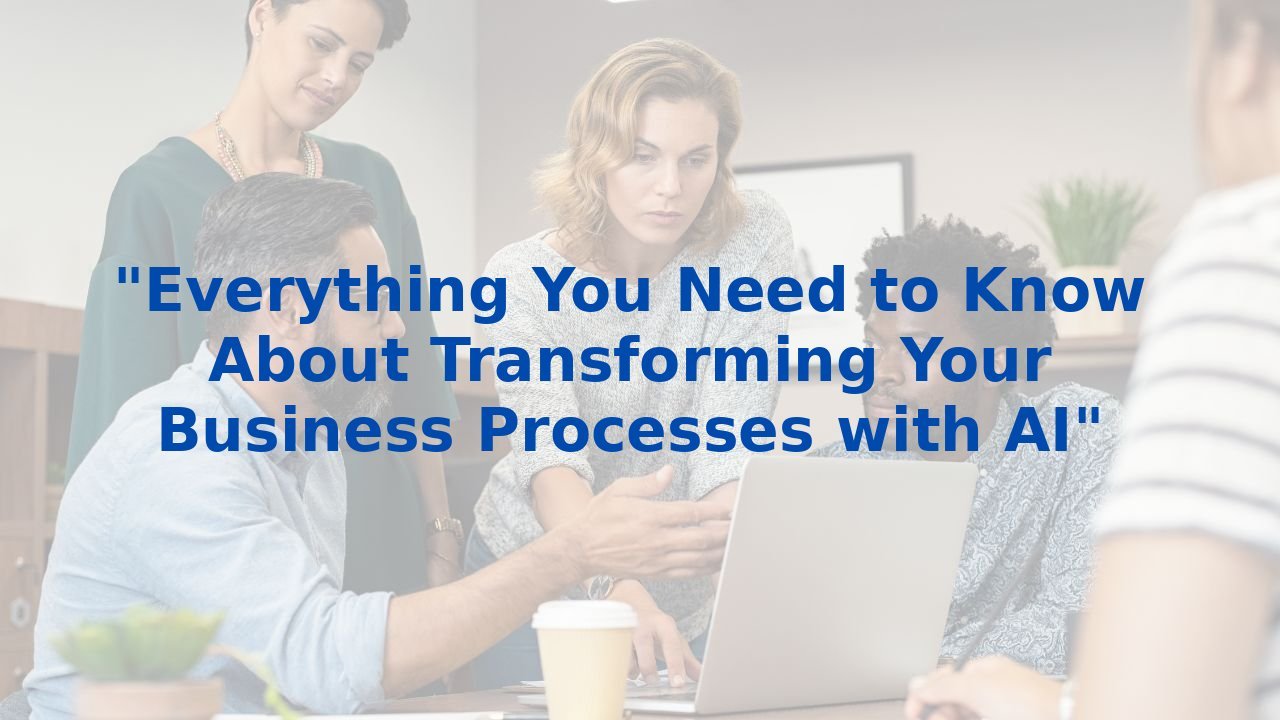How To Use AI for Inclusive Hiring: A Guide for Modern Businesses
The New Era of Inclusive Hiring: Enhancing Business Processes with AI
The recent release of updated guidance from the Equality and Human Rights Commission marks a pivotal moment in the realm of recruitment practices. This legislation emphasizes the critical need for fairness and non-discrimination within hiring processes, ensuring that all candidates are considered without bias. However, how can organizations effectively implement these guidelines while also striving for operational efficiency? Enter artificial intelligence (AI) — the game-changing technology that can enhance all stages of the hiring process and improve business efficiency.
Understanding the Importance of Fair Hiring Practices
The culmination of continual discussion around equitable hiring practices indicates a shift in how organizations approach recruitment. With the updated guidance, businesses are reminded of the importance of providing equal opportunities, thereby fostering a diverse workplace that thrives on varied perspectives. As we navigate these new legal landscapes, it becomes essential for organizations to embrace innovative solutions to ensure adherence to best practices.
AI as a Solution for Streamlined Recruitment
AI has the potential to revolutionize the hiring process in several key ways, making it more efficient while promoting inclusive practices:
- Enhanced Candidate Screening: AI algorithms can analyze resumes and applications at an unprecedented speed, identifying the most qualified candidates based on objective criteria rather than subjective biases. This not only fast-tracks the hiring process but also minimizes the chances of discrimination.
- Reduction of Bias: By automating parts of the recruitment process, AI can reduce human biases that may inadvertently seep into decision-making. Natural language processing can ensure job descriptions are free from language that might unintentionally discourage certain candidates from applying, which is crucial for fostering an inclusive environment.
- Data-Driven Decisions: With the capability to gather and analyze recruitment data, AI empowers organizations to make informed hiring decisions based on statistical evidence rather than traditional gut feelings. This data-driven approach aligns perfectly with the updated guidelines emphasizing fairness and accountability in hiring.
The Role of AI in Continuous Improvement
As organizations look to integrate AI solutions, it’s important to remember that these tools are not a one-and-done fix. Continuous improvement through AI can lead to more refined hiring strategies. For instance, AI can identify which recruitment channels yield diverse candidates, allowing businesses to focus their efforts on the most effective practices for building an inclusive workforce.
Training Employees for the AI Revolution
While AI is a powerful ally, its effectiveness hinges on how well employees understand and utilize it. Investing in AI training for employees is essential. Here’s why:
- Empowerment through Knowledge: Equipping your workforce with AI skills enables them to harness technology to its fullest potential. This stems from not just understanding how to operate AI tools, but truly internalizing the implications of data-driven decision-making.
- Enhanced Problem-Solving: Employees trained in AI capabilities can think strategically, utilizing AI insights for innovative solutions and long-term planning. This shift from traditional manual processes to data-supported actions commands a new level of agility and foresight.
- Cultural Shift towards Innovation: Embracing AI training fosters a culture of continuous learning and adaptability within your organization. As employees learn to embrace new technologies, they cultivate a mindset that not only seeks efficiency but also values inclusivity in the professional setting.
Moving Towards a Future of Inclusion and Efficiency
The intertwining of updated guidelines on hiring practices and AI solutions presents a unique opportunity for businesses to not only comply with legal requirements but also to bolster their operational efficacy. By prioritizing inclusive hiring techniques through AI-enhanced processes, businesses set the stage for diverse, dynamic, and innovative teams.
"The fusion of AI and inclusive hiring practices will not only transform recruitment but pave the way for a future where equality is at the core of all business operations."
In conclusion, as the landscape of recruitment evolves, organizations must evolve in tandem. AI provides the tools necessary to create an equitable hiring process that champions diversity while streamlining efficiency. By training employees to harness this technology and ensuring compliance with guidelines, businesses are well-positioned to thrive in a competitive marketplace.
To explore how your organization can better equip itself with AI skills for inclusive hiring, consider integrating AI training programs tailored for your workforce.



